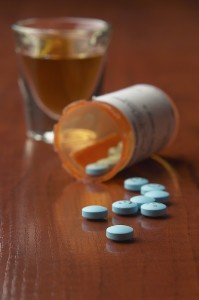 The Latest Advances in Addiction Treatment
The Latest Advances in Addiction Treatment
The statistics on addiction treatment and recovery are grim. It is estimated that 10% of Americans, more than thirty million people in all, suffer from addiction, but only 13% of those will ever seek treatment. While they have helped millions to get sober, 12-step programs have a success rate estimated at 8-13%, though some suggest far less, in the range of 5%. There has been no rigorous exploration of 12-step programs, but they continue to be the “treatment of choice” despite their poor outcomes. Of those who go to residential treatment programs, one-year post-treatment it is estimated that only 13% remain sober. This might be because most treatment programs rely heavily on the 12-step model for their treatment protocols. Treatment centers like mine, Cliffside Malibu, have a 70% recovery rate at one year, but sadly, most treatment centers have not moved on as we have, to use the evidence-based treatment protocols that are proven to work. …and most do not divulge their success rates.
There is a better way. Over the past two decades, evidence-based therapies have developed bringing hope for true recovery to the addiction treatment industry. Evidence-based simply means “scientifically proven.” These various therapies, when used together, create a treatment synergy that allows for real, long-lasting recovery. My full-time Director of Addiction Research and I wrote a book, Ending Addiction for Good, now in its second edition, detailing this treatment approach in the hope that other treatment facilities would upgrade their treatment protocols to include these proven techniques. Meanwhile, our efforts are also focused on public education, in the hope that the public will demand from treatment providers access to therapies that truly work.
What are the greatest inroads into addiction treatment? No single treatment is the be-all, end-all, but here are a few for your consideration.
Evidence-Based Treatment
Evidence-based treatment is based on the latest scientific research. What works in addiction treatment and what does not is studied and published in academic journals. This is an ever-changing set of treatment protocols, changing as new studies are released and new treatment procedures developed. These treatments can come from any number of fields: medicine, psychology, neuroscience, holistic health practices and/or complementary medicine. Experts are in agreement that evidence-based practices are the most effective for long-term recovery.
The finest treatment centers, like Cliffside Malibu, use a variety of scientifically proven methods with their clients. None of these treatments, on their own, will fix addiction, but when used together, they create lasting, long-term recovery when clients complete a full-term of treatment, usually three to four months in duration.
The majority of addiction treatment centers have not moved from 12 step model treatment to evidence-based treatment. This is tragic. 12 step programs were never designed to be primary treatment. While useful, they are support groups of individuals without training in helping people overcome the deep wounds that cause addiction. 12 step programs are an important supplement to treatment, but should not be considered treatment when used alone.
Individualized Care
Receiving individualized treatment is also critical for long-term addiction recovery to be successful. Many treatment facilities, to manage costs, put all clients through the same treatment protocol. At eight you might have a meditation group, at 8:30 breakfast followed by a 12-step meeting, group process session, art therapy, and lunch. While this may seem like a productive, well-planned day, it is nothing more than a way to fill the hours. To recover from addiction, one must get at the root causes of their addiction problem – which means using a variety of therapies in an individualized process to overcome these old wounds and build a path to recovery. You or your loved one, because of your particular history of trauma, the drugs you’ve been using, the dosage, and the amount of time you’ve been using, will require a personalized treatment plan using a wide-array of treatments, to overcome addiction for good.
Intensive One-on-One Psychotherapy
One-on-one psychotherapy, which should take place at least three days a week in residential treatment and is suggested twice a week for the first year of sobriety, is critical to creating lasting addiction recovery. Its goal is to examine and overcome the psychological causes of addiction. Whatever the trigger was that made a person need to use alcohol or drugs in the first place, that needs to be examined. If this is done, recovery is more likely to stick.
Why is psychotherapy so important? It allows an individual first to receive support and care in a safe environment and build a trusting therapeutic relationship with someone with the skill to help process the pain or trauma from the past. Addiction rarely develops without archaic pain. In order to live a new life, the addict must work through those issues and gain skills for dealing with future difficult events. In this way, the addict develops tools for living and having important, appropriate intimate relationships with others.
The Stages of Change
Developed by one of the world’s leading psychologists, Dr. James Prochaska, and his colleagues from the University of Maryland, the Stages of Change model teaches us that change happens in a predictable manner. Because we know how change occurs, we can also anticipate the likely obstacles to change. In other words, if we know where a person is in the change process, we can help them avoid the common issues that cause relapse. At Cliffside Malibu, we walk with a person through the stages of change, helping them navigate the change process safely and effectively. Through an aftercare plan and ongoing support, we’re able to help an individual move through the stages until they are in the “maintenance” stage and effectively able to manage their recovery on their own.
Neuroscience
The latest discoveries in neuroscience are teaching us that the real change of addiction recovery is happening in the brain. The brain is much more dynamic and malleable than we ever imagined. The latest research indicates that while the brain is changed by addiction, rewired so to speak, it is also changed, also rewired, by recovery. Our Director of Addiction Research is working with international leaders in neuroscience to show how the brain can be renewed, in a sense, by addiction treatment and recovery.
These are but a few of the many advances being made in addiction treatment. The bottom line: be careful where you send your loved one for treatment. Ask about evidence-based treatment and find out what, if any, of the latest scientifically proven methods of addiction treatment the treatment center you’ve chosen is using. Your loved one deserves the best. There is real hope now in the field of addiction treatment, real recovery. Demand that your loved one receive treatment that is scientifically proven to be effective. They deserve it.
The Best Call You Will Ever Make
Call Now to Speak Confidentially with an admission counselor.
